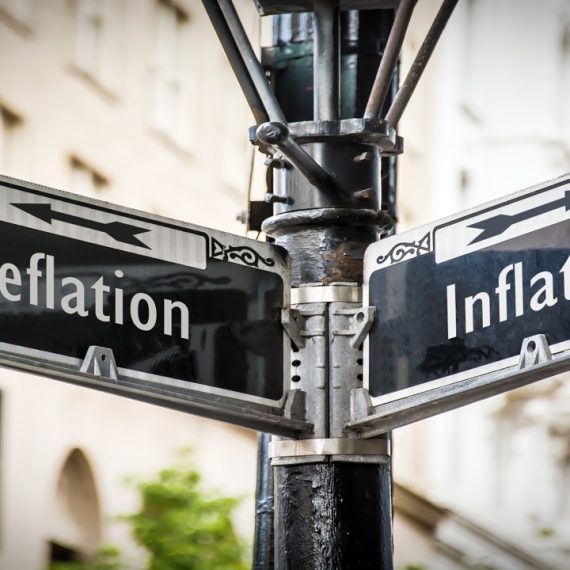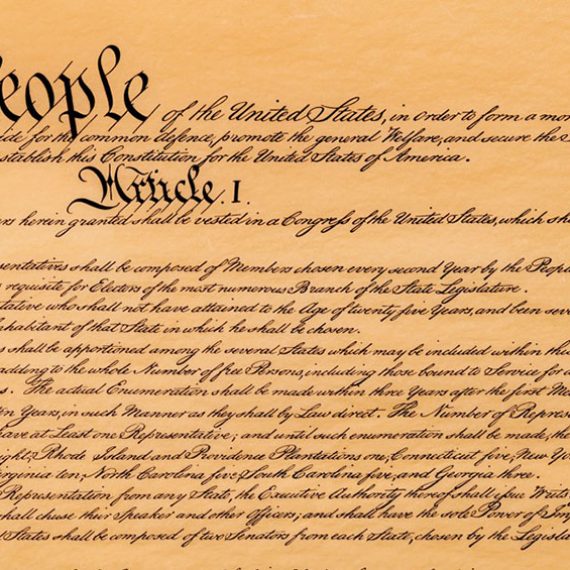The German version of The Epoch Times newspaper published an interview by Roman Baudzus with James Turk on April 8, 2022, which was also posted online and can be read at this link. With their permission to publish the English version, the interview follows:
RB: I would like to start our conversation with a look at the London Metal Exchange. There has recently been an explosion in the price of nickel. Within just two trading days, the nickel price rose from roughly 20,000 to over 100,000 US dollars per tonne, which resulted in a temporary suspension of the trading activities. What mechanisms underlie such a movement?
JT: There are in essence two markets for commodities, currencies, and securities. In the spot market, assets are purchased for immediate delivery. In the futures market, contracts are traded for future delivery. Traders often get caught in a bubble and lose sight of reality, namely, that owning a tangible asset – like nickel or some other commodity – is different from owning a promise to receive an asset at some future date.
Consequently, as occurred with nickel, when the time arrives to deliver a commodity to the buyer, sometimes the quantity of promises is far greater than the available stock. The price rises as a result until the market is cleared, which occurs when all buyers and sellers are satisfied. To achieve that outcome, supply and demand are again in balance. The high price in nickel eventually lessened demand for it by discouraging buyers and encouraging sellers.
RB: In the meantime, it became known that a Chinese tycoon seems to have gambled mightily on the basis of his held short positions, resulting in losses of more than 8 billion US dollars for this market player. The operators of the London Metal Exchange then decided to cancel positions held by other traders in the amount of four billion US dollars to come to the rescue by providing a bailout for this special market player at the expense of all others. Will arbitrary expropriation schemes like this become an instrument that is proving to be an attribute of a “new normal“?
JT: Yes, but it is not “new”. What we are talking about here is contract obligations and property rights. The erosion of property rights was a dominant feature of the twentieth century, and sadly, it continues to this day as this nickel example clearly shows. The intellectual achievements left for us by the luminaries of the Age of Enlightenment are increasingly ignored as the State working in conjunction with large banks grabs ever greater power to the detriment of individual rights. So instead of losses being taken because of the bad decisions made by the Chinese tycoon, the bank that financed most of his speculative position, JP Morgan Chase, engineered a bailout, trampling over the contractual property rights of those parties who made good decisions and were on the winning side of the trade.
To achieve the best possible result, markets must be driven by the rule of law, not corporate or political power. When markets are seen by participants to be unfair, they stop using them.
RB: How realistic is the assumption that a stock exchange like the London Metal Exchange might even get into an existential predicament about such incidents?
JT: Exchanges are simply a meeting place for buyers and sellers. An exchange’s responsibility is to both buyers and sellers, and it meets this responsibility by ensuring that participants follow the exchange’s rules and the law of the country where it operates. Thus, the exchange itself is not exposed to losses incurred by traders. A clearing house may incur a loss if its members together are unable to cover the failure of any member to make good on its obligations.
RB: Here and there it is rumoured that a similar event could happen at some point in the silver sector. How would you pinpoint the reasons if there should really be a prospect for such a possibility? And what possible consequential problems would be associated with such an event?
JT: If silver were to soar as nickel did, it would be for the same reason – the supply of physical metal is too small relative to the obligations to deliver metal at current prices. The price would need to rise to bring supply and demand back into balance. Price is always the adjusting mechanism in free markets unfettered by government intervention and absent price manipulation.
Given that silver is trading today at half the price it reached in 1980 at the peak of that period’s inflationary boom, it does appear undervalued. The purchasing power of all national currencies has been eroded over the past 42 years from inflation. So on that basis as well as other factors that I have looked at, silver today looks undervalued to me.
I therefore believe the rumours about silver have validity, and that its price is being held down by those banks that are not able to meet their promises to deliver physical metal because there is not sufficient supply available at current prices. Physical silver has been accumulated by so-called “strong hands”. These are companies, like jewellery fabricators, and investors who understand that silver is undervalued, and they are not willing to sell at current prices. So the banks have been stymied, but instead of allowing the silver price to rise, which would cause the banks to incur a loss, they keep the price low in the hope of eventually being able to exit their delivery commitments without a loss.
RB: For several years now, Graham Summers’ coined term “everything bubble” has been making the rounds in global financial markets. In which areas do you think the largest and most dangerous bubbles have formed over the last few decades? Is it the bond bubble? Or isn’t the paper gold bubble perhaps even bigger? And If so, why?
JT: The biggest bubble is the money bubble, which is the title of a book I co-authored in 2014: The Money Bubble: What To Do Before It Pops. Though written several years ago, the analysis therein remains valid. Even though the money bubble is leaking as the purchasing power of national currencies erodes, the money bubble has not yet popped because people still believe that national currencies are money, instead of what they really are, a money substitute circulating in place of money. The true meaning of money is recognised when a financial crisis leads to a flight out of currency.
My latest book has just been published, Money and Liberty: In the Pursuit of Happiness and The Theory of Natural Money. It addresses your question about the paper gold bubble and much more actually. Like silver, gold is also undervalued, and its price is likely to rise because inflationary pressures look set to worsen.
RB: What about gold ETFs like the SPDR Gold Trust? Let’s assume that there would be significant increases in the price of gold in the future. Taking into account the current situation in the nickel segment, would it be expected that all investors could have gold delivered to them physically at almost the same time? And what would this look like with regard to the New York commodity exchange Comex?
JT: If you own an ETF you do not own gold, you own shares in a fund whose objective is to track the gold price. The fund may do that successfully, or it may not. Owning shares in an ETF has the same risks as owning shares in any enterprise, and there are many, ranging from the quality and honesty of management to all the other aspects of operating a company or fund. I always recommend that an investor read the prospectus of the fund before buying it to learn about the risks of the fund. Further, most ETFs do not allow its shareholders to exchange their shares for any metal assets in the fund, which is a serious impediment if your objective is to own gold, rather than speculate on its price.
If you want to own gold and enjoy the benefits it offers, there are only two ways to do that. You need to buy physical metal and store it yourself or have it professionally stored for you in a secure non-bank bullion vault.
RB: Not only nickel traders are being expropriated these days. Earlier on, in light of the trucker protests in Canada which was followed by a declaration of a state of emergency by Prime Minister Justin Trudeau’s federal government, it was announced that political opponents and donors to the movement had their personal bank accounts frozen. The Bank of England confiscated gold reserves from Venezuela, while the Fed of New York froze around 7 billion US dollars in deposits from Afghanistan. Russia´s accounts were frozen by the G7 states after the military invasion in the Ukraine. Roughly 600 billion euros in foreign currency and gold reserves sit idle and cannot be accessed by the Kremlin. What are the consequences of these developments in terms of the general confidence in the Western-dominated world financial system?
JT: There will be repercussions. There always are when earth-shaking events roil markets because inevitably bad decisions have been made, but we only learn about them over time. We are now seeing the repercussions of the financial sanctions imposed on Russia. The soaring price of crude oil was the first event.
Because the western banking system was closed to Russia by the sanctions, the Russian government stated that payment for crude oil and gas must be made in roubles. It has now been reported that Germany is preparing to ration gas because it is disputing the use of roubles to make payments to Russia.
It is worth noting that whilst the West generally disparages gold, Russia and China have been accumulating it. The leaders of these countries understand that gold is money, and further, the post-Second World War petrodollar system is unsustainable because of the huge spending deficits of the US federal government and the resulting huge debt it is incurring. So Russia and China as well as a number of other countries have been accumulating gold I suspect in their expectation that gold will in time return to its rightful role as the preferred payment media at the centre of global commerce, and they want to be prepared for that event, which given current events may not be too far in the future.
With regard to money, the twentieth century has been an aberration from historical precedent. We can therefore eventually expect a return to the mean, namely, gold will in time return to its rightful and traditional role at the centre of global commerce, thereby enabling individuals around the world to trade peacefully with one another without government interference. The inalienable right of contract will once again emerge supreme over the dictates of the State along with the implementation of the other timeless principles important to a fair and just society expounded during the Age of Enlightenment. If not, our civilisation will continue to descend into the “might makes right” tyranny of dark ages from the past that resulted in declining living standards and few intellectual or cultural achievements.
RB: In the global financial markets, current events have led to controversial discussions in many places. A majority now seems to expect that the era of the US dollar as the world’s reserve currency seems to be over. Do you share this view? And if so, why?
JT: The dollar’s role is not over yet, but it has been eroding for decades. It suffers from the same malady afflicting all national currencies today – the loss of purchasing power.
As the issuer of the world’s reserve currency, the US federal government has the responsibility to maintain a sound dollar, which means that the currency must preserve its purchasing power. It has failed to do that. The US government through its central bank has been debasing the US dollar since the 1960s. It now takes ten-times as many dollars to purchase what one dollar bought back then, the result of what we call inflation.
The Deutschemark is a good example of proper currency management. The Bundesbank managed the Deutschemark to preserve its purchasing power, which was essentially unchanged from Germany’s economic miracle, the Wirtschaftswunder, to the introduction of the euro in 1999. The Bundesbank’s reliable and intelligent management of the Dmark was truly a remarkable achievement, setting it apart from all other central banks. It established the Dmark as the world’s premier sound currency.
The US government was able to abuse its position as the manager of the world’s reserve currency during the Cold War because countries wanted the protection of its nuclear umbrella. The erosion of the dollar’s international role has been accelerating since the end of the Cold War, but its decline has been contained because of central bank financial repression, such as forcing interest rates to artificially low levels to minimise the interest expense paid by governments to control their budget deficits. But repression of free markets is futile because it is not a viable policy. The financial and monetary turmoil prevailing today suggests that another crisis is brewing, which is likely to be worse than the 2008 calamity.
Finally, what does “reserve” mean? Currency today is fake-money conjured out of thin air with bank accounting. Only banks have been granted the privilege of allowing their liabilities to circulate as currency, and liabilities introduce counterparty risk. Liabilities are based on promises, and promises do get broken, regardless of whether the dishonour is caused by bad decisions, Mother Nature, or a myriad of other reasons. When the reliability of promises is questioned, people begin fearing for the safety of their wealth, so they seek out tangible assets. When a currency becomes doubted, they seek the gold held in reserve by the banks that issued the currency. Only gold can fulfil the role of a reserve.
RB: Are we currently witnessing a rouble that may soon be backed by crude oil, gas or even gold? How far-reaching do you personally assess the changes that can be observed in the global financial markets?
JT: We cannot predict the future, but Russia has announced the first steps moving to a gold standard. It has set a minimum rouble price for gold and eliminated the sales tax on gold. It is possible that the rouble could be backed by gold and circulate under a domestic gold standard, assuming the Russian central bank allowed roubles to be redeemed for gold, which was a key element of the Classical Gold Standard.
The US dollar became the world’s reserve currency because it was considered to be “as good as gold”. Those days are long past. What is worse, the US dollar has become a political tool and weaponised. It is no longer a neutral tool, which makes it less useful in global commerce.
RB: Why do you place your bets on physical gold and other precious metals like silver? For a long time it was said that these metals would be nothing more than “barbaric relics” from a distant time, which do not yield interest and also cause storage costs. How do you counter such arguments?
JT: First of all, gold and silver have been money for 5,000 years, so they have proven themselves over time. They were chosen by individuals – not governments – in pre-history for their monetary role. Gold and silver continue to maintain the key requirements of good money even though they do not circulate as currency. For example, a gram of gold buys essentially the same amount of crude oil as it did in 1950. When measuring prices by a weight of gold, there is no inflation.
Central banks are the barbaric relic, not gold. Central banks serve the State, not the people. Once the link to gold was broken in 1914, the power of the State increased. Then in the 1930s the State became all powerful when gold was confiscated and taken out of the hands of the people by Lenin, Mussolini, Hitler, and Franklin Roosevelt.
We need to keep in mind Mao Zedong’s frank truth about government: “Political power grows out of the barrel of a gun.” Governments need purchasing power to buy guns and bullets, and they cannot create guns and bullets out of thin air. So they work with the banking system that creates phantom purchasing power out of thin air, which governments then borrow, transforming the debt into currency the politicians use to meet their spending aspirations. That process describes how politicians in the Weimar government with the help of the Reichsbank destroyed the Reichsmark in the 1920s hyperinflation, and it is the exact opposite of the system that guided the Bundesbank.
The German government could not force the Bundesbank to transform bunds into Dmarks. Not only was the Bundesbank truly independent of political control, its managers understood the importance of preventing inflation to maintain a sound currency because they had in living memory the economic turmoil from the collapse of the Reichsmark before the Wirtschaftswunder.
Worryingly, the European Central Bank acts as if it is under political control. It has been transforming the debt of EU countries into euros, not into banknotes like the Reichsbank did. Instead, the euros are being created as deposit currency within the banking system, mimicking the inflationary – and in some cases, hyperinflationary – practice of many Latin American central banks.
RB: Finally, I would like to ask the question, how do you view the Bitcoin markets? Bitcoin proponents are talking about the role of Bitcoin being the new money and possibly dethroning the US dollar as the world reserve currency. Has gold become obsolete in this sense? Or are there powerful arguments that oppose such a view in order to give priority to gold?
JT: Bitcoin and its imitators are called “cryptocurrency” for a reason. They are not cryptomoney. Logic and experience demonstrate that money is a tangible asset, and history makes clear that gold is the preferred tangible asset to use as money for numerous reasons, one of which is most important. Gold is the only thing in the known universe that is eternal. It does not suffer from entropy; it cannot be destroyed. All the gold mined throughout history still exists in its aboveground stock, which if formed in a cube could slide under the arches of the Eiffel Tower. Gold is mined and then accumulated because its greatest use is money.
Importantly, gold preserves purchasing power over long periods of time. Doing so enables sound economic calculation – namely, measuring prices – and that is essential to economic activity. For example, though the price of crude oil is rising in terms of euros, dollars, pounds, and the other national currencies, there is no inflation when prices are calculated in weights of gold. As I already mentioned, a gram of gold buys essentially the same amount of crude oil as it did in 1950. This result occurs because the aboveground stock of gold grows by approximately the same rate as world population, causing the supply and demand for gold to remain in balance with the supply and demand of the goods and services humanity needs.
Nature provides everything humanity needs to advance, including money. Gold is natural money that has served humanity well for 5,000 years but has now been abandoned by the force of government, increasing the power of the State to the detriment of individual rights.
Whether gold has been endowed in the earth as natural money by fortuitous chance or the intelligent design of a Creator, I will leave to others to decide.
RB: James, thank you very much for this conversation and for taking the time to do so.
JT: Thank you. I hope you find my thoughts to be of value.

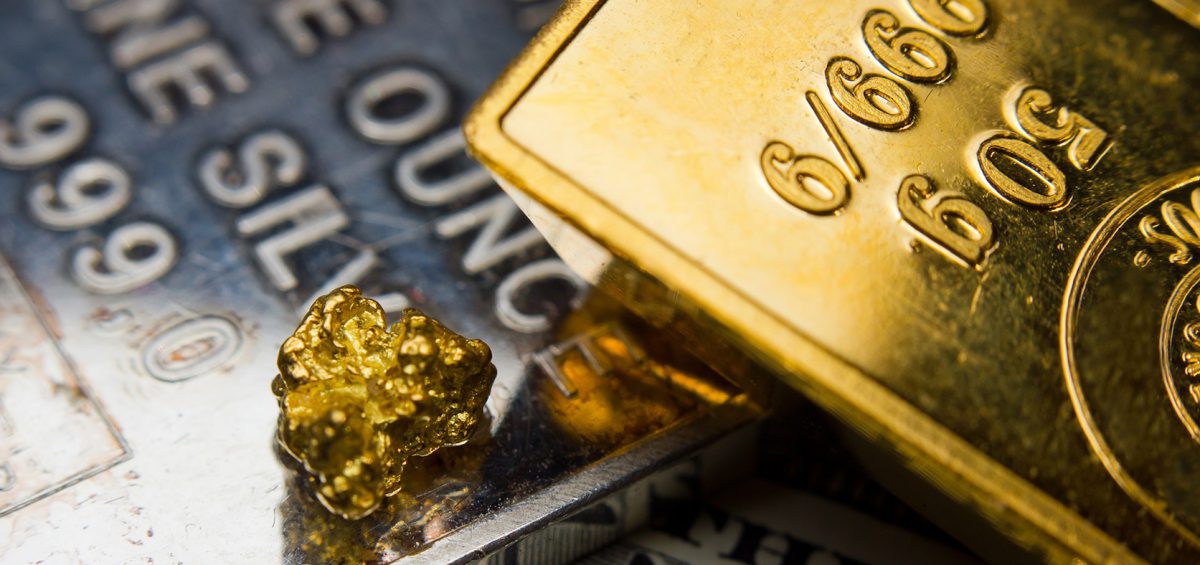
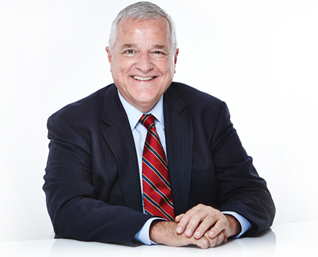

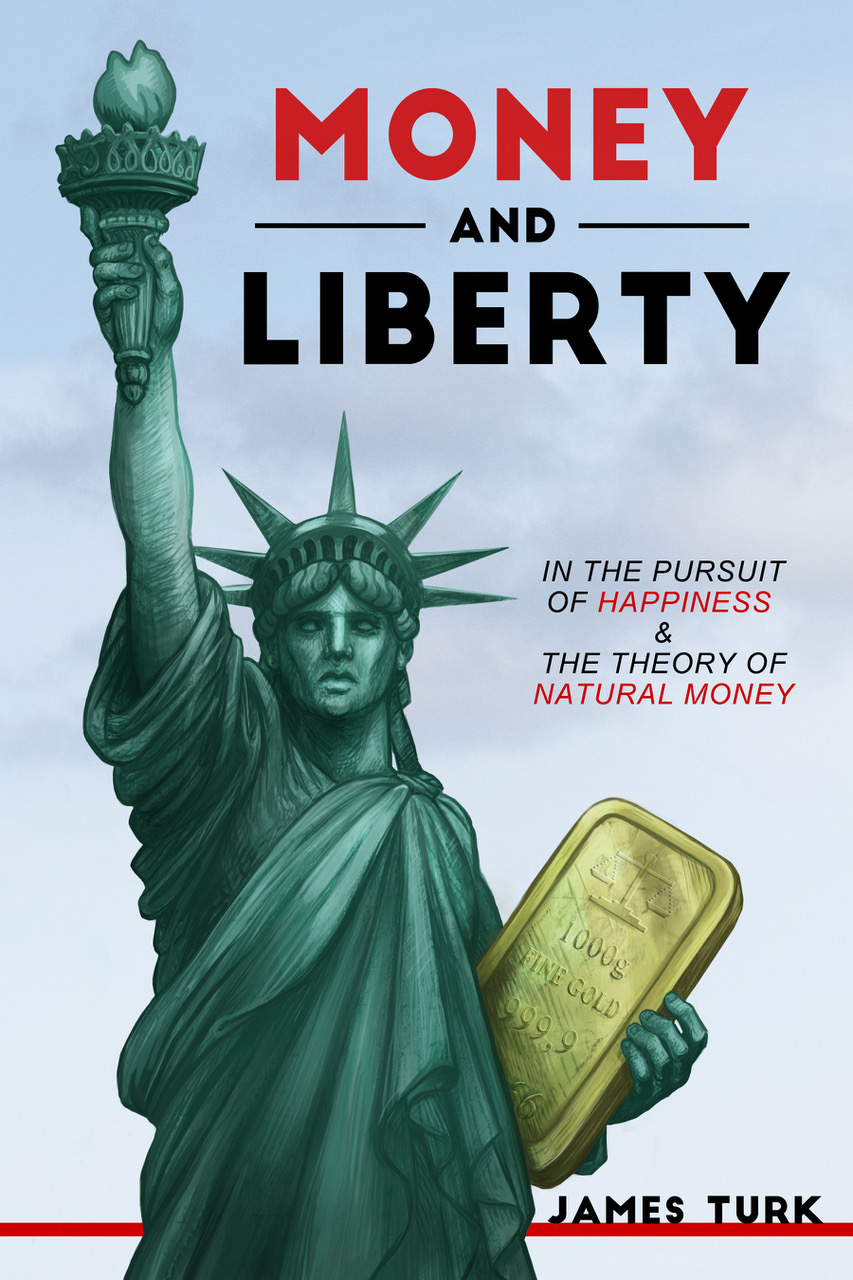
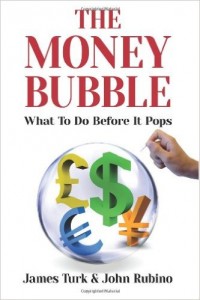
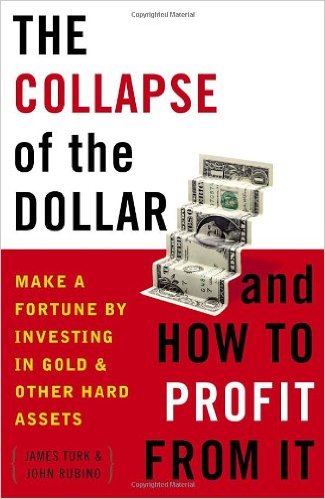
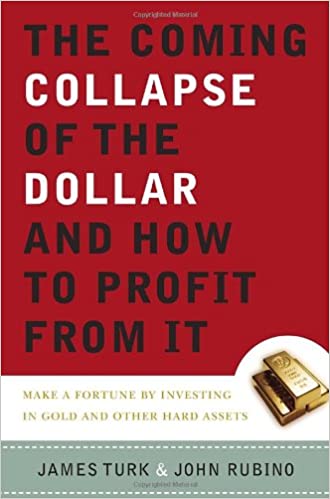
 My objective is to share with you my views on gold, which in recent decades has become one of the world’s most misunderstood asset classes. This low level of knowledge about gold creates a wonderful opportunity and competitive edge to everyone who truly understands gold and money.
My objective is to share with you my views on gold, which in recent decades has become one of the world’s most misunderstood asset classes. This low level of knowledge about gold creates a wonderful opportunity and competitive edge to everyone who truly understands gold and money.